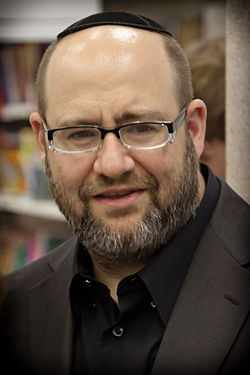
Yehuda Berg is an American author and former teacher of Kabbalah. Until 2014, Berg was a co-director of the Kabbalah Centre, which was founded by his parents Philip Berg and Karen Berg.
Contents
Berg was an international speaker and author. One of his many books, The Power of Kabbalah, became an international best-seller [1] as did another of his books, The 72 Names of God. [1]